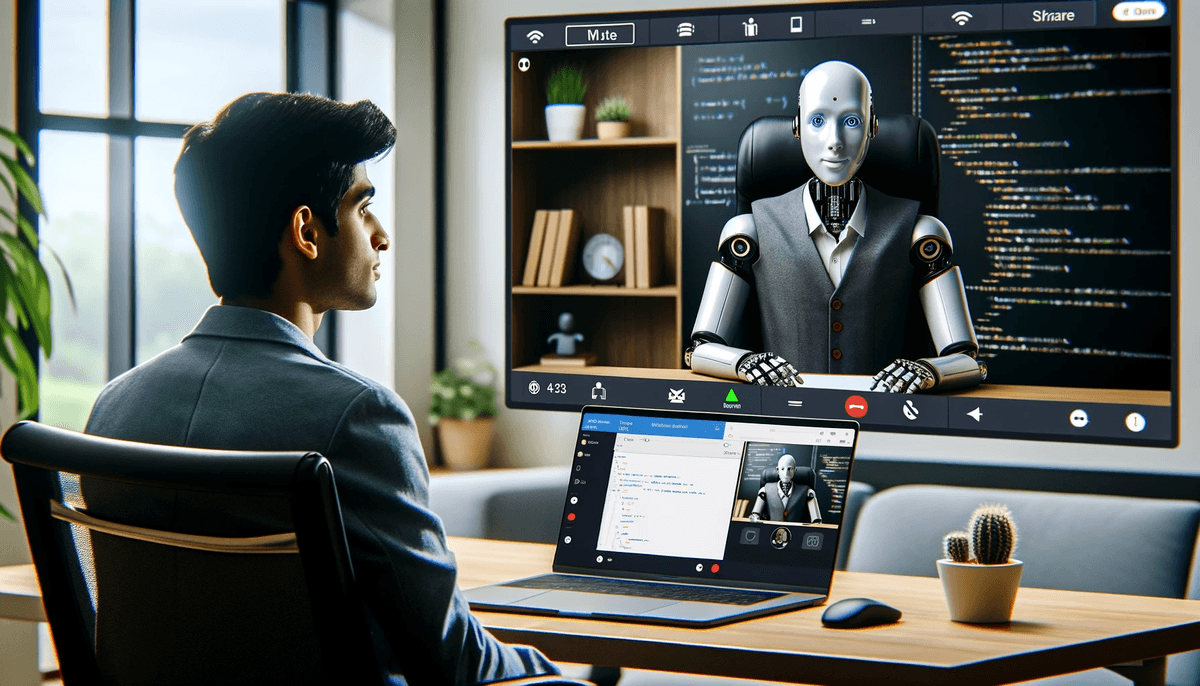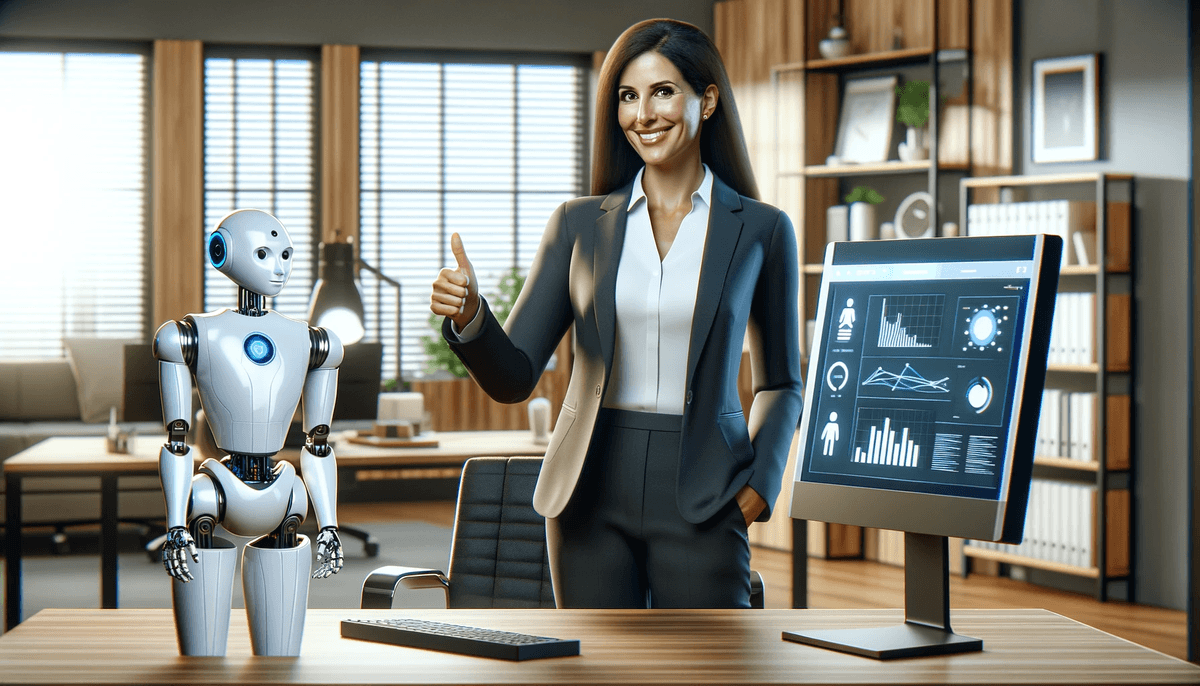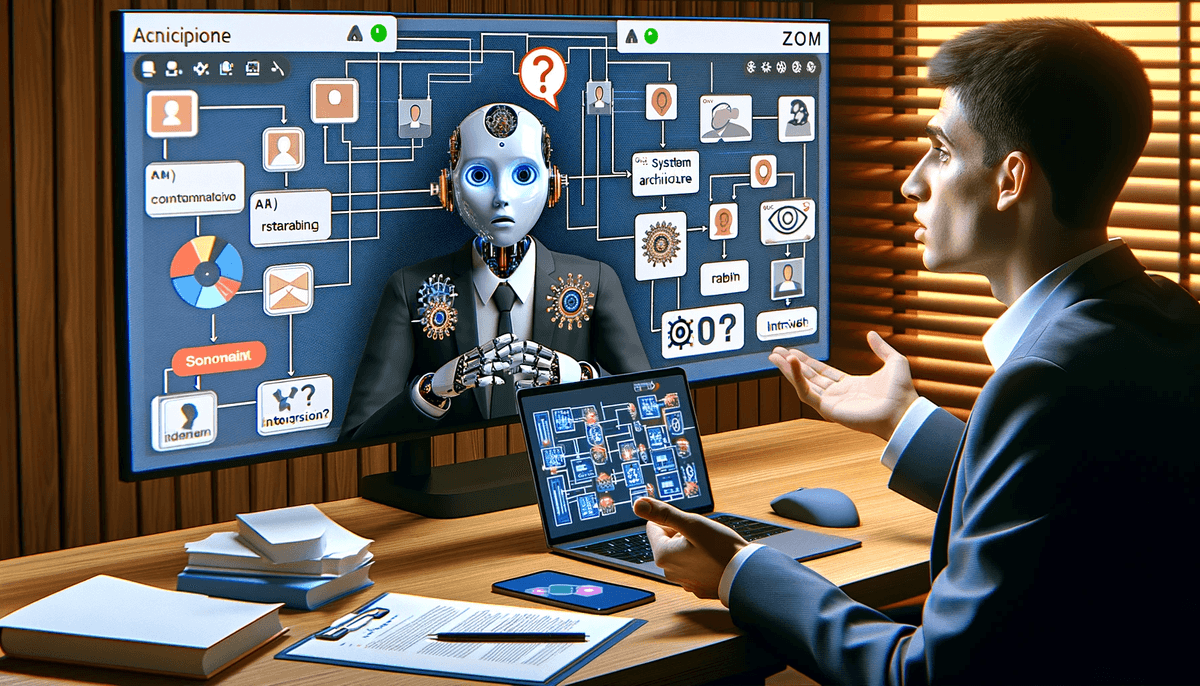Embracing AI in Job Interviews: My Experience with ChatGPT

GPT Powered Interviews, or How I Learned to Embrace my Superpowers
My Journey with ChatGPT in Interviews
I was nervous, almost shaking. I haven't interviewed in a few years. I've been working on my own project for two years, and before that, I was at Zillow for four years. I'm not a memorizer; I'm a thinker, a problem solver. When I go into interviews, I tend to get stuck remembering syntax, or the exact order of operations. I never really get stuck with the big picture; I'm a systems thinker. But this interview turned out to be different. The interviewer said, "Feel free to use any resources you want. You can use Google, StackOverflow, whatever you want, even ChatGPT."
The Benefits of AI Assistance
Job interviewing stands to benefit a lot from LLMs in general, and it's already happening. I've been interviewing for the past several weeks and, to my pleasant surprise, I've been able to use ChatGPT to help me answer questions during the technical interviews.

Job interviews should be an opportunity to discover a good fit. For a software engineer, to be a good fit, you need to be able to implement solutions using available tools and technologies, communicate your reasoning, and the rest is very company/role specific. In fact, even implementing solutions is often company/role specific. It often depends on the availability and maturity of frameworks and tooling for the job. So, maybe all that really matters is communication. If you can communicate your reasoning, you can learn the rest on the job.
A New Paradigm of Interviewing
I've been thinking about this a lot lately. Although I use ChatGPT4 every day in my own work, to help me write code, think through problems, practice interviews, write emails, and learn about new technologies, I still wasn't confident that interviewers would be open to letting me work that way during the interview. I was wrong. Of the last five companies I've done technicals with, all of them were OK with me using ChatGPT to help me answer questions. They just asked that I be able to explain my reasoning.
Why is this a Good Thing?
I think this is a good thing. ChatGPT is an incredibly powerful tool, and I'm not trying to show a prospective employer that I've learned some specific knowledge. I'm trying to show them that I can learn and communicate. I'm trying to show them how it is to work with me. I know that with me, it's a totally different experience with and without ChatGPT. With ChatGPT, I'm able to think through problems more thoroughly.

I spend less time worrying about the details of syntax or the exact order of operations and more time thinking about the potential pitfalls of my approach. I can confidently spend time thinking through the pros/cons of different approaches, and know that I won't get caught up trying to remember the exact syntax or work through basic logic. I can shine a light on my strengths: systems design, communication, and problem-solving.
Tips for Using ChatGPT in Interviews
With that in mind, here are some tips for using ChatGPT during interviews:
Use ChatGPT as much as possible until you reach its limits.
With any new technology, your job as an engineer is to understand the limitations. ChatGPT is no different. It's not perfect. You will need to understand and describe the problem and the particular edge cases and nuances in the business requirements. It can help you with a lot of the basic logic, and even help you with the overarching solution. But infrastructure as code, nor functions, or classes will explain how the entire system works together.

That knowledge for sophisticated systems is still beyond the scope of what LLMs can do (perhaps not for long, though). My suggestion is to leverage it as much as possible, and then when you reach its limits, very clearly call that out. For example, "I think I've reached the limits of ChatGPT here. I'm going to try to explain the problem in more detail, and then I'll try to explain my approach."
Use your experience and knowledge to skip the obvious stuff.
You can choose what to ask ChatGPT for help with. If you know there is a particular approach that is obviously the right one, then you can skip asking ChatGPT about that and instead leverage it to help you prototype out the solution. Even better, you can ask it for common alternatives to the obvious solution, and then use your experience to suss out which approach is best.
Read through ChatGPT's responses carefully, and show understanding.
You should not rely on ChatGPT to give you the right answer. You should use it to help you think through the problem. It's important to show the interviewer that you understand what ChatGPT is telling you, and that you can explain why it's a good or a bad answer. If you don't understand what ChatGPT is telling you, then you should ask it to explain it. This shows maturity and responsibility. ChatGPT is not getting paid and is not going to take the responsibility for mistakes.
Use ChatGPT to help you prototype out solutions.
Prototype out solutions using ChatGPT. This is a great way to show the interviewer that you can think through the constituent parts of a solution, and know what each part does, and how they connect together. It's a chance for you to speak beyond the code, to how a system could be deployed, secured, scaled.
Attitude is Everything
Remember to be humble, open, and honest. Admitting that ChatGPT is faster or more knowledgeable about some things is not a bad thing. It shows that you understand how disruptive new technologies can be. By embracing change and being willing to accept the trade-offs, you show your prospective employer that you are a change maker, and have a willingness and maturity to handle the great responsibility that comes with great power.
Conclusion
I'm excited about the future of interviewing. I think it's going to be a lot more fun, and a lot more fair. I think it will be a lot more about communication, and a lot less about memorization. I think it will be a lot more about the big picture, and a lot less about the details. I think it will be a lot more about the person, and a lot less about the technology.
Call to Action
If you're interested in how I use LLMs to be more productive, reach out to me on Twitter (X): @aerbitsai. I'd love to share my learnings and hear all about yours.